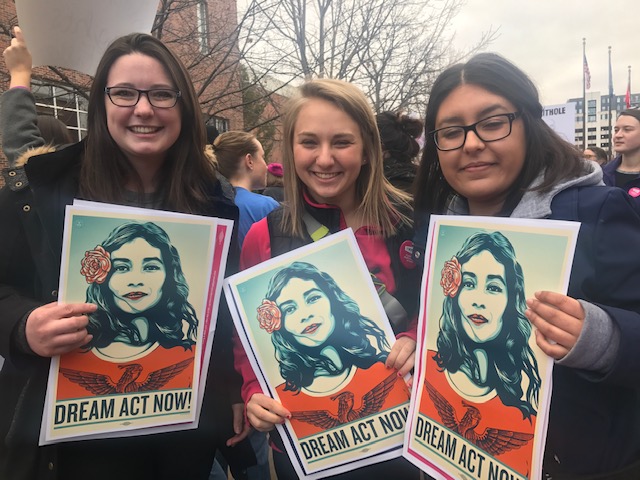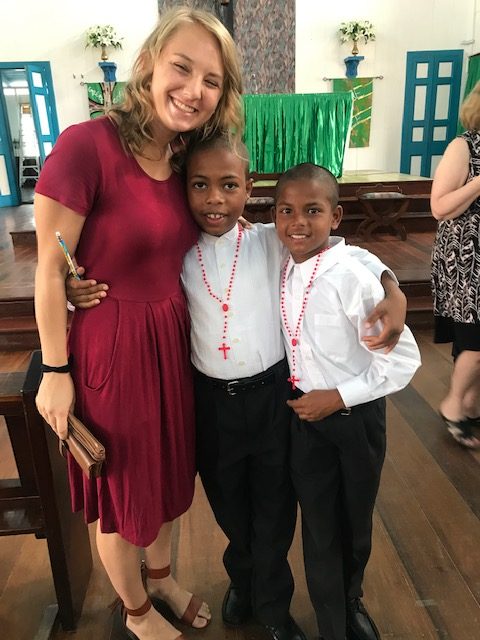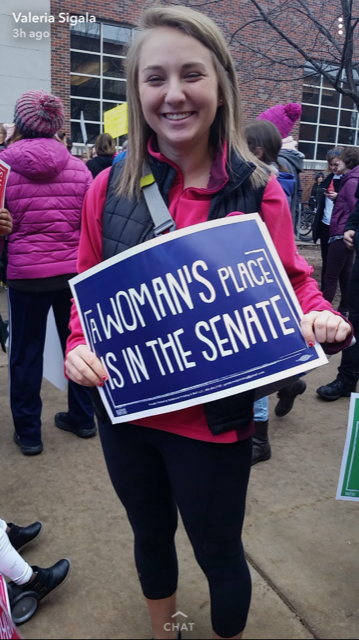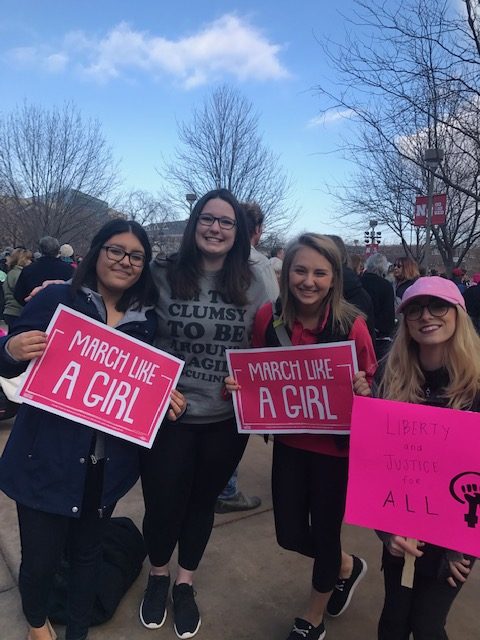By Meghan Petersen, a Mercy Volunteer Corps alumna who served in Georgetown, Guyana, South America
Voting season is quite possibly the best span of time every two to four years. It’s a chance to sit and envision what we want our communities to be. Voting is all about listening; it is intentionally taking time to hear what our hearts are drawn to in seeking a more just world; it is listening to those who are disenfranchised and not allowed a voice in the voting process. It is casting a vote to say you matter, we matter, what we believe in matters. Listening with our vote is a gesture of welcoming and inclusion as we join together to recognize our shared lineage and our unique circumstances.
It is hard for me to choose which issues are the most important, because we are incredibly interconnected in Earth and body. Listening to community and heart is value-based. In reflecting about my Mercy Volunteer Corps experience and reading more about voting as a spiritual practice, I realized that my time serving as a Mercy Volunteer in Guyana created a foundation of new values. Service instilled in me the importance of hospitality, empathy, nonviolence and sacredness. Voting with intention follows these values.
Hospitality is welcoming in action. Hospitality is about breaking down barriers to include everyone in our country. It means considering candidates and their language around welcoming the stranger and the neighbor who may not look like, praise like, love like or move like themselves. True hospitality embodies the spirit of authors Liz Fosslien and Mollie West Duffy, who wrote: “Diversity is having the seat at the table, inclusion is having a voice, and belonging is having that voice be heard.” Hospitality especially comes into play in terms of migration. When people arrive at our borders expecting the “land of opportunity” but instead are put in cages, what does that say about our opportunity? It creates a glaring message of opportunity to explore barrier after barrier to freedom, inclusion and belonging. Candidates who spread ideas of fear and division about those born in other places promote the idea that hospitality and an invitation to the table can only be extended if people fit within the cage of being white, English-speaking, cis-gendered, heterosexual and Christian. That is the antithesis of hospitality. Voting with genuine hospitality is finding a candidate who creates a table where all voices are heard.

Empathy is realizing how inextricably connected we are—Earth, animal, human and spirit. Empathy is compassion in action, it’s digging down our toes into the shoes in which someone else lives, works and loves. It allows you to feel and imagine the joy and suffering of another being. During a political season, it is important to look outside our scope of everyday life into what others are saying, feeling and living about their oppression. Empathic voting requires responding. Right now, empathy is required in listening to how people do not feel represented by and in their government, policies, policing and schools.

The Black Lives Matter movement is an act of empathy of listening to the many people of color who have not been invited to the table and are not represented there. It is forcing others to walk outside the scope of their privilege and to stand and demand a seat, voice and ear at the table. Our biggest act of allyship is to hold our representatives accountable in how they have contributed to a racist and white supremacist society and demand they work to address bias, discrimination and prejudice in thought and action. Empathy is looking at our own practices and how we have contributed to racism in our communities, schools, places of work and places of worship. It is asking ourselves where we have fallen short in recognizing our connection to each other and our fellow humans’ experiences.
Nonviolence promotes collaboration. Our inner sense of peace is hope for our communities and circles of influence. Nonviolence encourages coexistence and prevention of the degradation of the Earth and the human spirit. Voting as an act of peace is intentional in choosing a candidate who speaks out about the continued oppression and prejudice in our country. It is seeing through the fog of promoting business over humanity. A humanity-over-business mentality looks at how we progress and the cost of that progress. It makes us question who or what are we tearing down as we move forward. Is our Earth going to suffer from this progress? Are our neighbors going to suffer?


Sacred voting is the realization of standing firm with our feet pressed to the ground and knowing that this place we call home was holy before we arrived. It is holy now and will continue to be holy once we depart. Voting in the mind of sacredness welcomes that sense of holiness as we look to care for our neighbors, planet and spirit.
As November looms ahead, take time to center yourself in the values that inspire you to share the planet with others and look toward candidates who want to join in that journey with you.